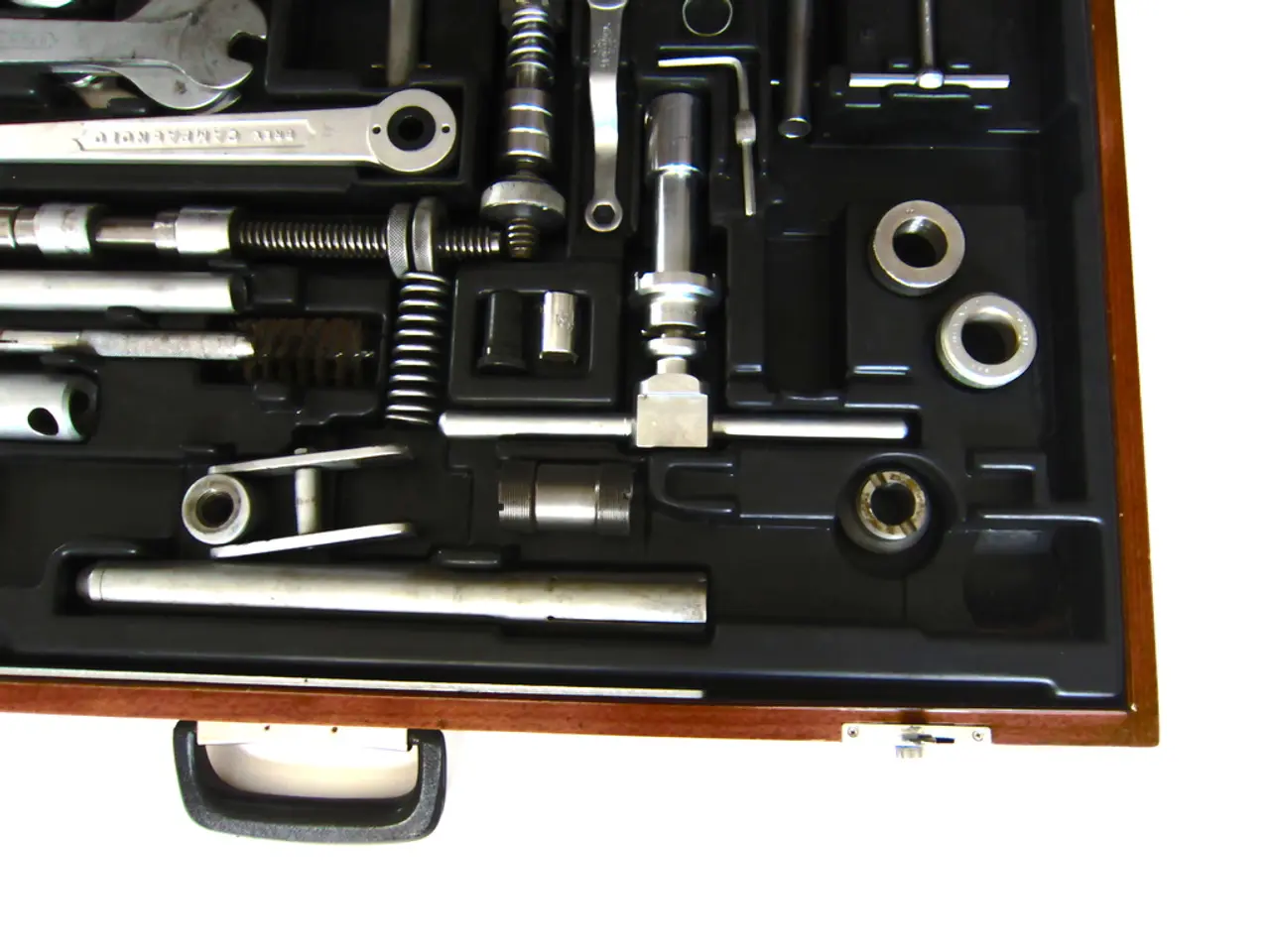EPA Contemplates Weakening Greenhouse Gas Regulations: Implications for Automobiles and Air Pollution
The Trump administration's proposal to revoke the 2009 "endangerment finding" and rewrite tailpipe standards could potentially lead to the third set of rules being reversed. This move, if successful, would remove the legal basis for regulating greenhouse gas emissions under the Clean Air Act, directly impacting federal rules on vehicle tailpipe emissions.
The proposal argues that if carbon dioxide is not considered air pollution, then it cannot be regulated. This stance is based on a report from five scientists who reject the scientific consensus on climate change.
The revocation of the endangerment finding would dismantle the foundation of U.S. climate policy, allowing automakers greater freedom from emissions limits and potentially slowing the transition to cleaner vehicles. Without these federal standards, automakers may reduce investments in EV technology and fuel efficiency, leading to more gasoline-powered vehicles on the road.
This could increase overall greenhouse gas emissions while also affecting vehicle market dynamics, including supply, pricing, and consumer incentives tied to clean energy and emissions standards. However, states like California are likely to continue enforcing and even strengthening their own emissions standards, potentially positioning themselves as leaders in climate regulation and clean vehicle adoption.
The EPA's change regarding vehicle standards is just a proposal and will have a comment period, during which companies, organizations, and members of the general public can tell the agency what they think. Public comments will be accepted through September 21, and a public hearing will be held in August.
The auto industry's position has been more nuanced, with the major automaker trade group, the Alliance for Automotive Innovation, stepping up a few years ago to defend the EPA's right to set strict standards but also frequently pointing out that it would be far easier and more efficient to have one set of standards instead of three.
The Biden-era standards are seen as unfeasible by traditional automakers due to the growing demand for EVs being slower than expected and the administration's elimination of consumer EV tax credits. Even as EV sales flag, hybrids, in particular, are likely to stay strong.
The Trump administration's deregulatory push is being challenged in court and will almost certainly face more lawsuits. California has sued over the revocation of its EPA waiver, and states and environmental groups have asked the federal courts to review some of NHTSA's changes to the CAFE standards.
Environmental advocates have expressed concern over the rollback of vehicle standards, with the Environmental Defense Fund president stating, "if there are no enforced limits on pollution, you get more of it, making life more expensive and even more dangerous." The American Petroleum Institute, however, has welcomed the EPA's proposal, calling it "a critical step toward restoring consumer choice."
In contrast to the federal rollback, states like California are likely to continue enforcing and even strengthening their own emissions standards, potentially positioning themselves as leaders in climate regulation and clean vehicle adoption. This divergence between federal and state-level action may create a fragmented regulatory environment for the auto industry.
[1] New York Times, "Trump Administration Proposes Rolling Back Car Emissions Rules," 2019. [2] Washington Post, "Trump Administration Plans to Roll Back Obama-Era Auto Emissions Rules," 2018. [3] USA Today, "Trump Administration Rolls Back Obama-Era Fuel Efficiency Standards for Cars," 2019. [4] The Guardian, "Trump Administration's Rollback of Car Emissions Rules Could Boost Pollution and Slow EV Transition," 2020.
- The proposal to revoke the 2009 endangerment finding and rewrite tailpipe standards could potentially lead to the removal of the legal basis for regulating greenhouse gas emissions under the Clean Air Act, directly impacting federal rules on vehicle tailpipe emissions.
- This move, if successful, could increase overall greenhouse gas emissions while also affecting vehicle market dynamics, including supply, pricing, and consumer incentives tied to clean energy and emissions standards.
- The EPA's change regarding vehicle standards is just a proposal and will have a comment period, during which companies, organizations, and members of the general public can tell the agency what they think.
- The auto industry's position has been more nuanced, with the major automaker trade group, the Alliance for Automotive Innovation, stepping up a few years ago to defend the EPA's right to set strict standards but also frequently pointing out that it would be far easier and more efficient to have one set of standards instead of three.
- States like California are likely to continue enforcing and even strengthening their own emissions standards, potentially positioning themselves as leaders in climate regulation and clean vehicle adoption.
- The Biden-era standards are seen as unfeasible by traditional automakers due to the growing demand for EVs being slower than expected and the administration's elimination of consumer EV tax credits.
- The Trump administration's deregulatory push is being challenged in court and will almost certainly face more lawsuits, with California having already sued over the revocation of its EPA waiver.
- Environmental advocates have expressed concern over the rollback of vehicle standards, with the Environmental Defense Fund president stating, "if there are no enforced limits on pollution, you get more of it, making life more expensive and even more dangerous," while the American Petroleum Institute has welcomed the EPA's proposal, calling it "a critical step toward restoring consumer choice."




